Selected Plants of Navajo Rangelands
Yucca
Tsá’ászeh
(a.k.a. Banana yucca, narrowleaf yucca, yucca angustissima, yucca baccata)
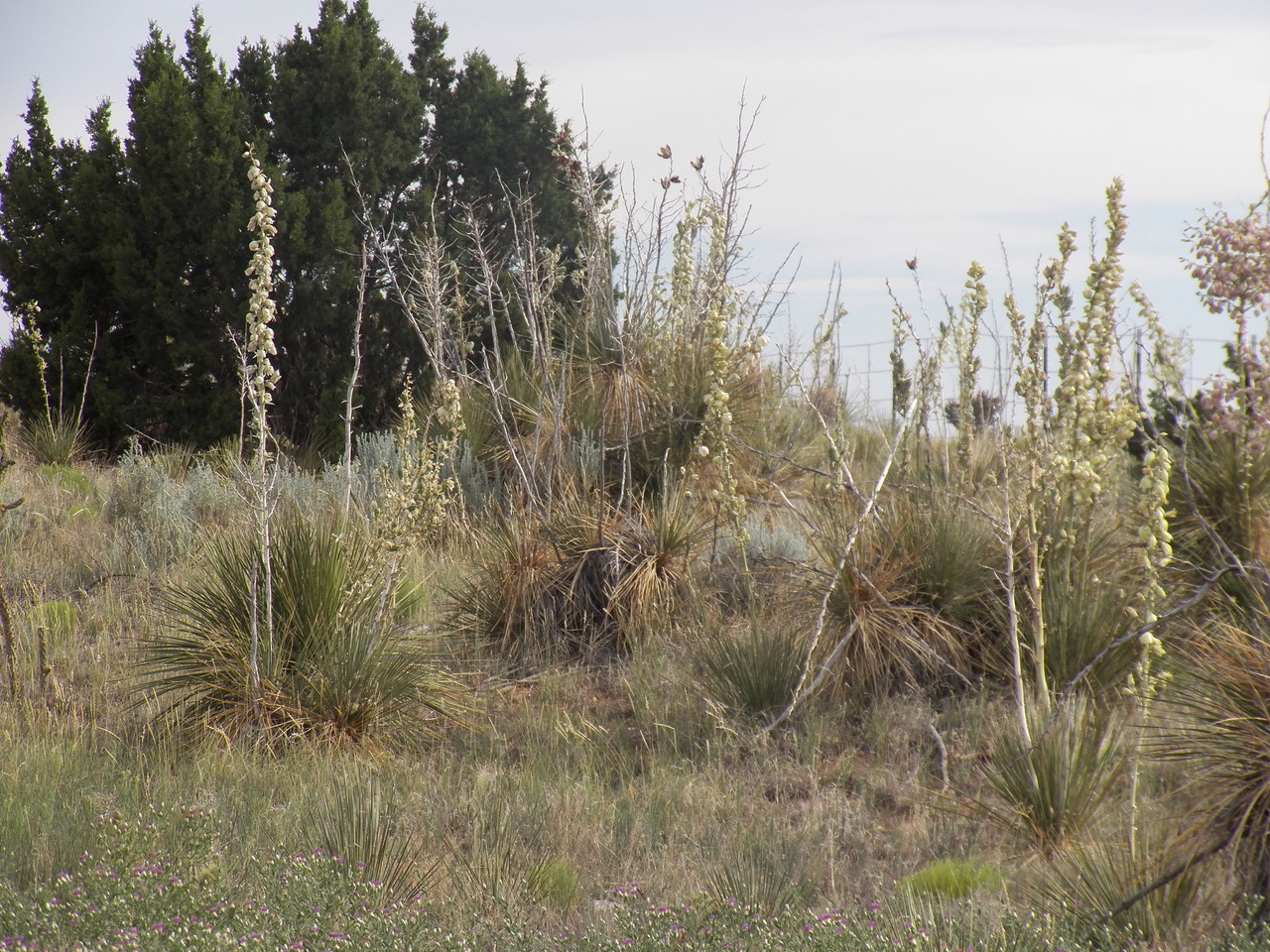
Yuccas are deep rooted and long lived, with individual plants living hundreds of years. Leaves stand out protectively and are armed with sharp points. Most have loose, thread-like fibers that curl from their edges.
Flowers produced in May and June are highly palatable and used by livestock and wildlife.
Yucca has diverse uses. Stalks, buds, flowers, and some fruits have served as food. Roots can be used for soap and as a laxative, and leaf fibers can be used as cordage, weaving material, and to make sandals.
The fruits of banana yucca are fleshy and succulent, roughly like short, fat, green bananas. (Most other yuccas have dry, hard fruits.) Banana yucca fruits are traditional foods. They are prepared by roasting or baking, stripping out the seeds, pounding the remaining flesh into a pulp, forming the pulp into flat cakes, and sun-drying for later use. The resulting product is nutritious, sweet, and delicious. The fruits are often picked before maturity and ripened off the plant to keep wildlife from eating them.
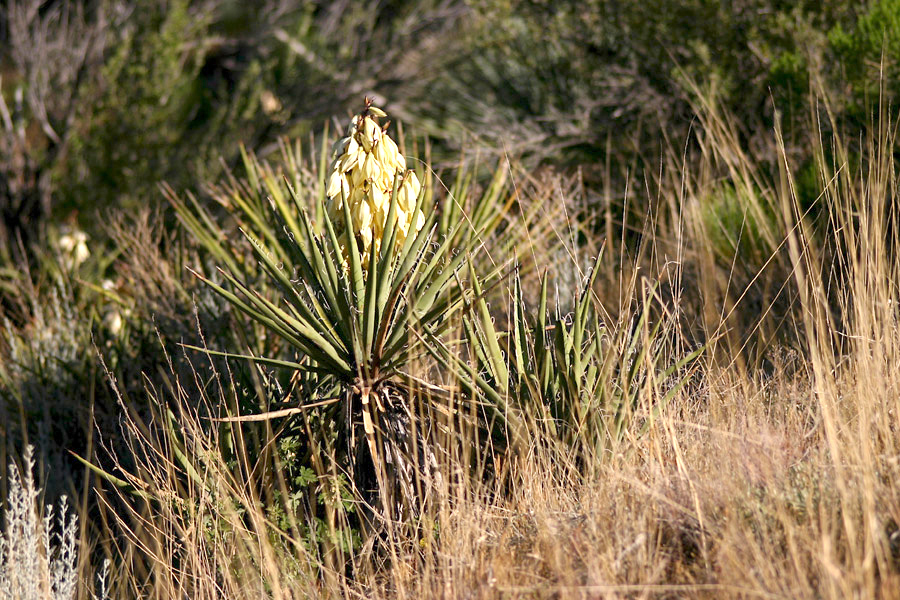
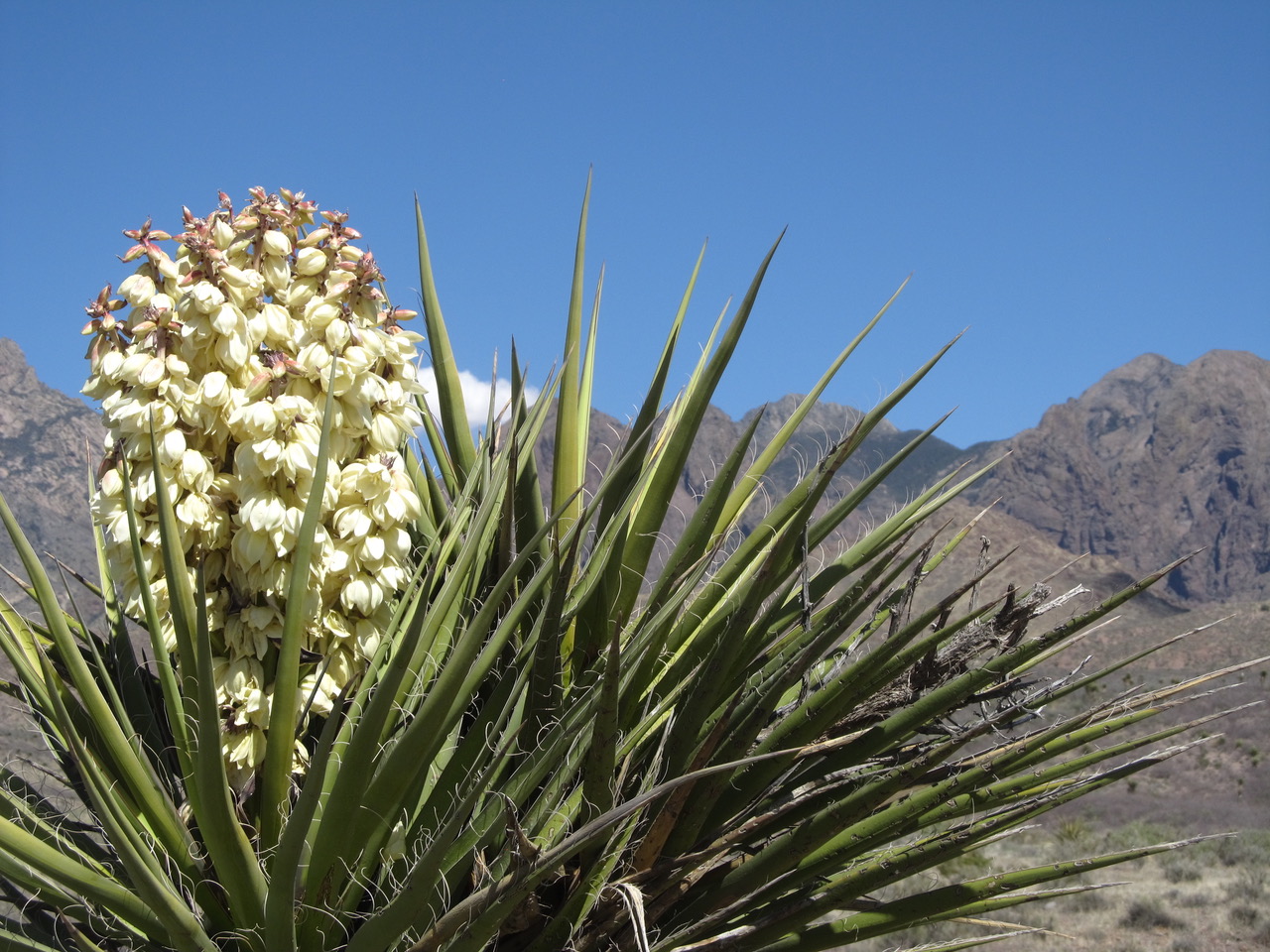
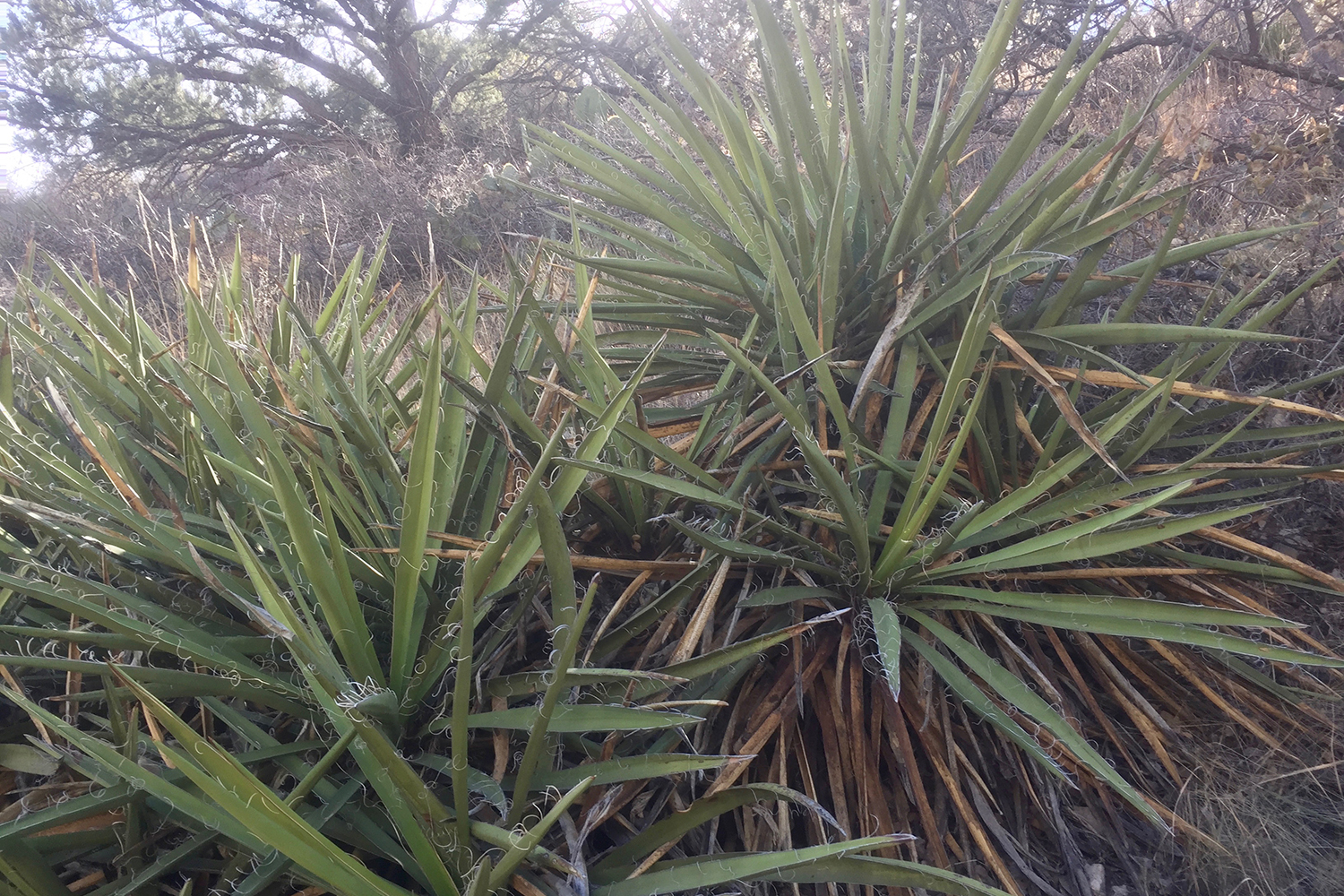
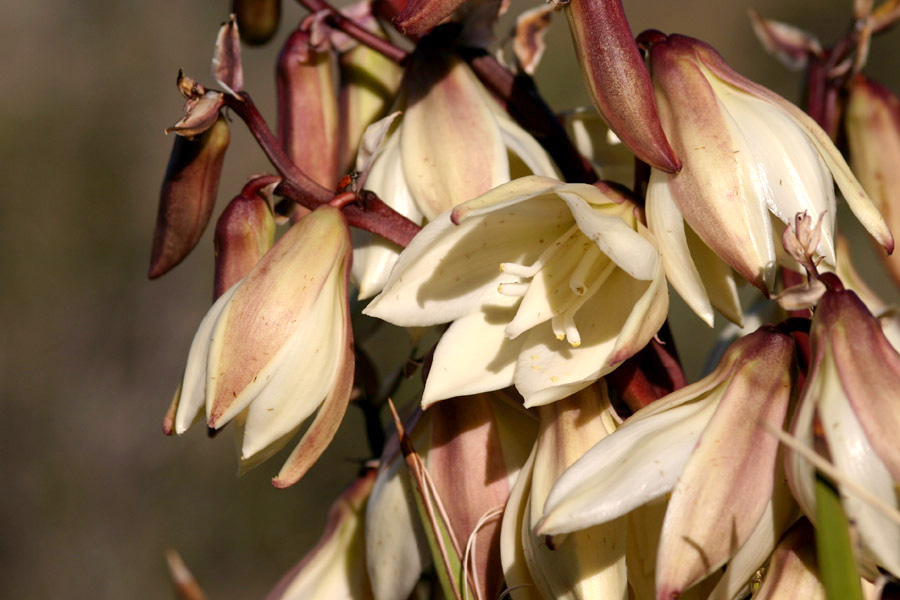
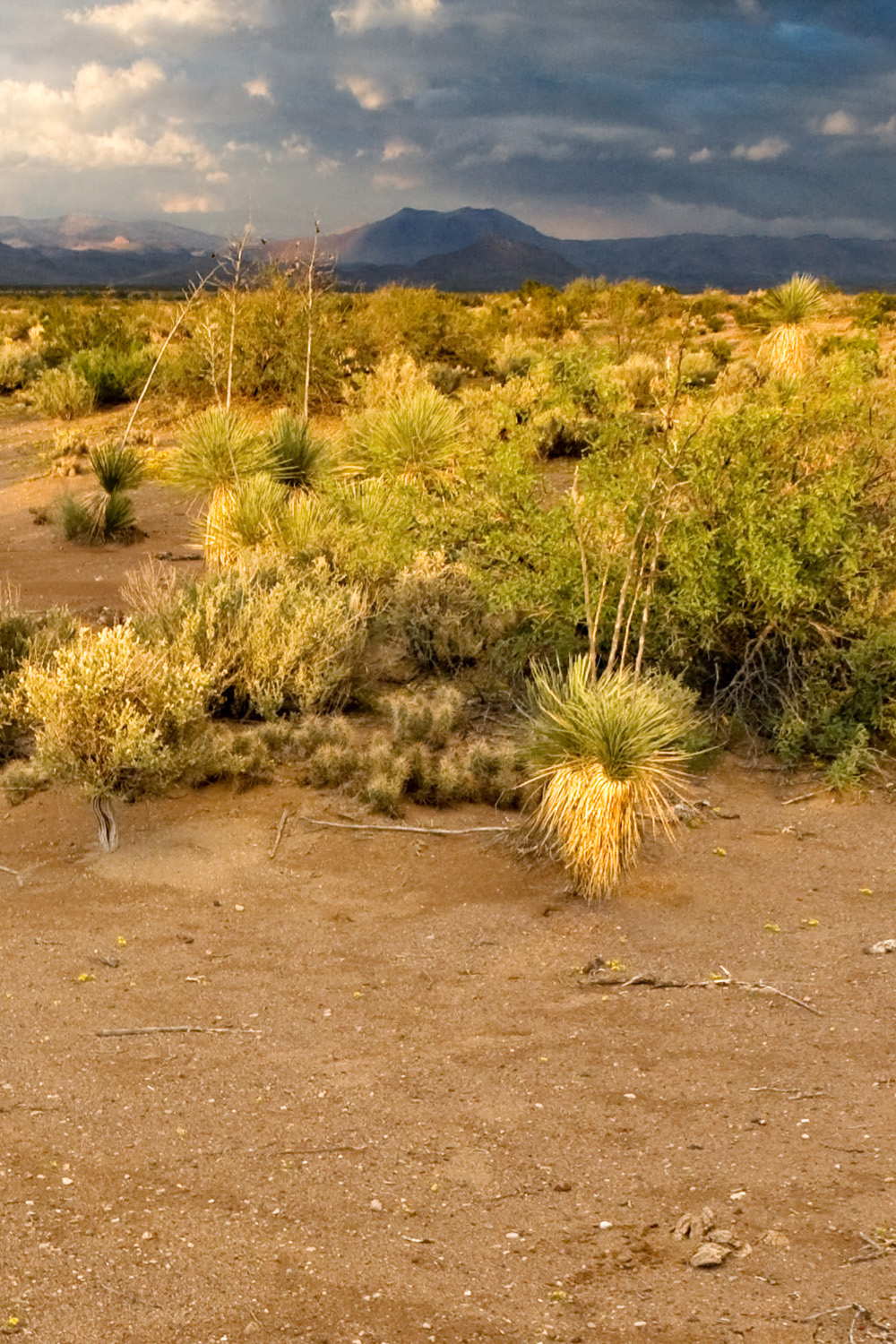
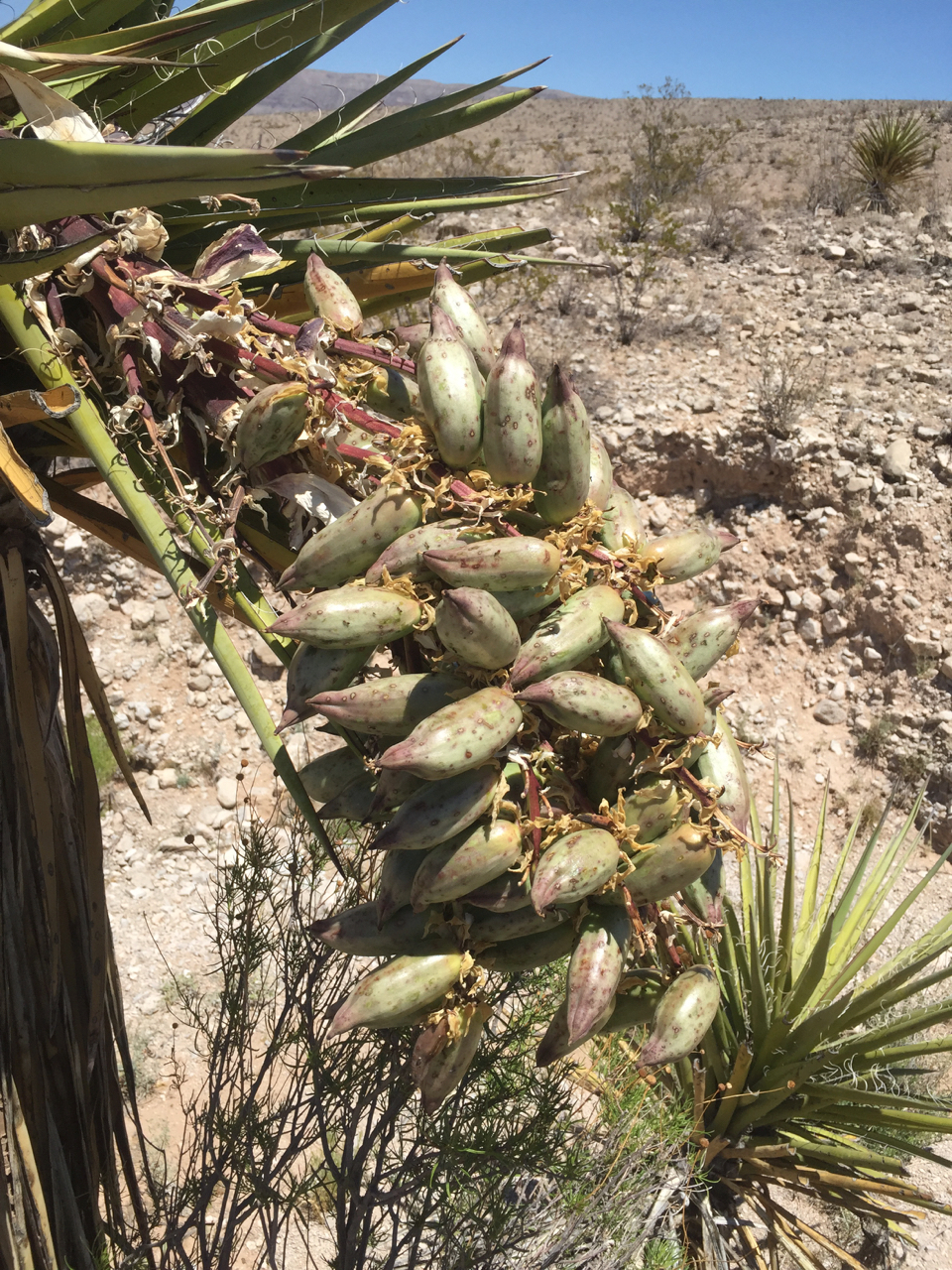
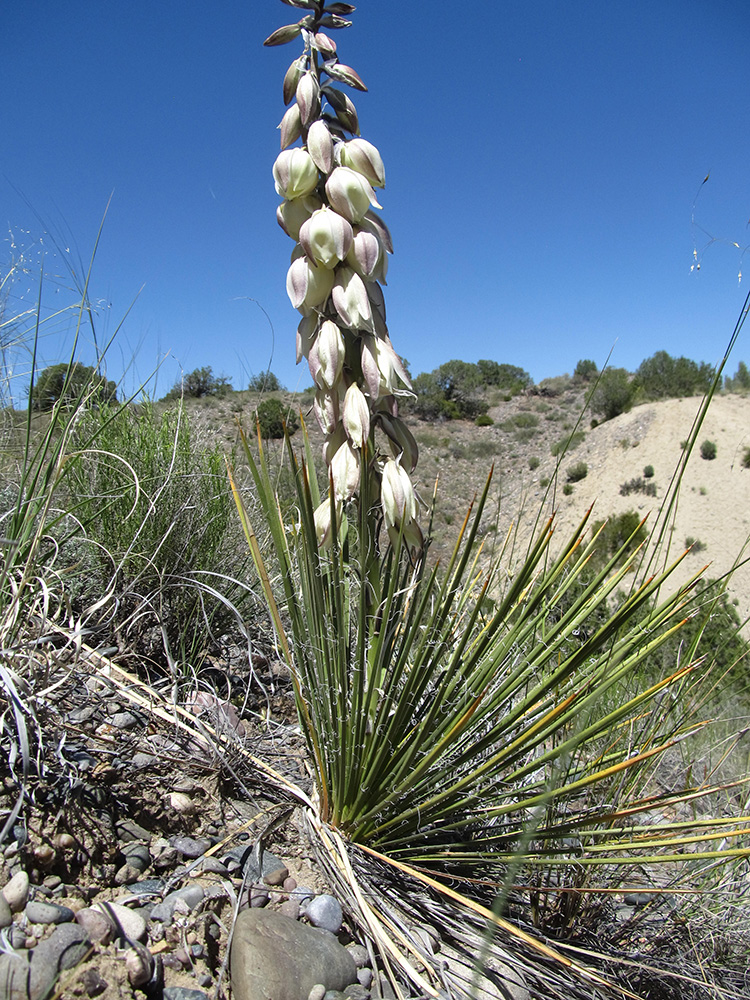
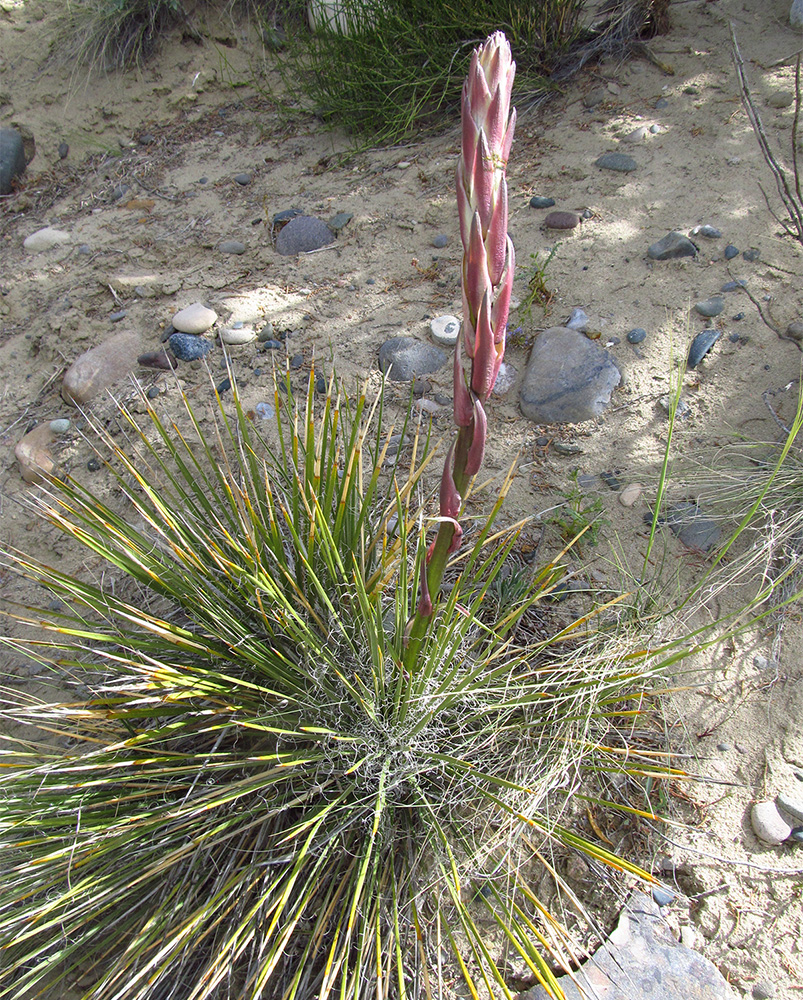
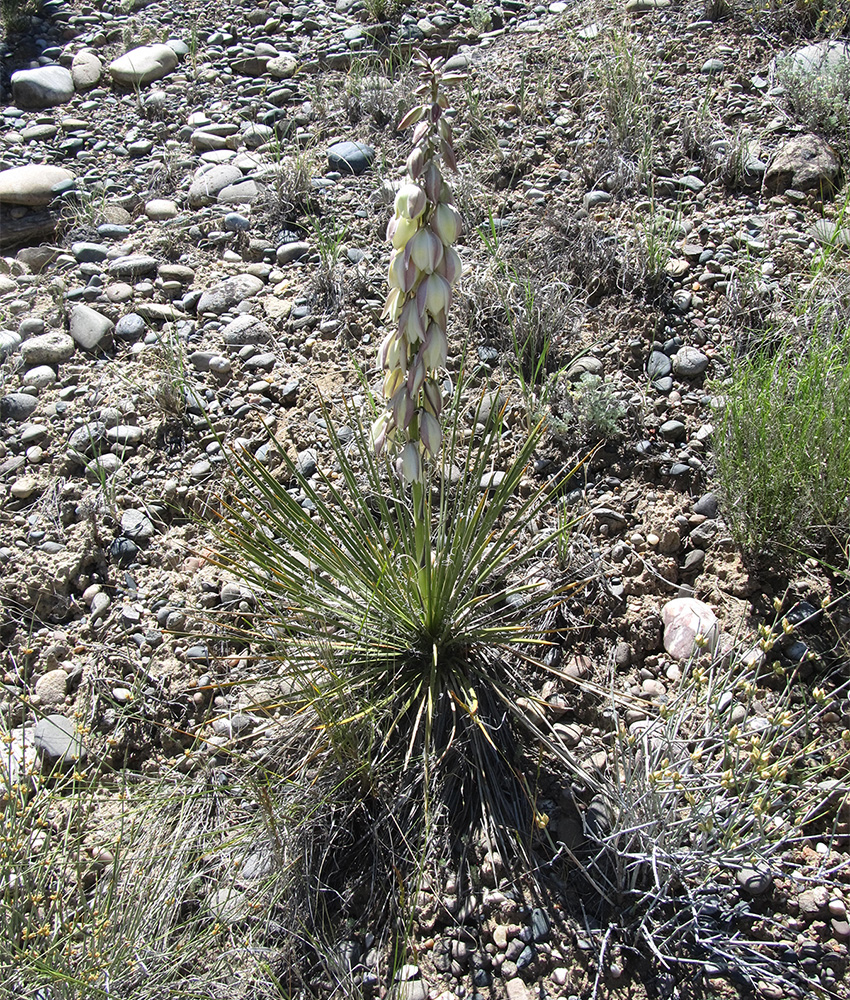
Copyright 2018 New Mexico State University. Individual photographers retain all rights to their images. Partially funded by the Western Sustainable Agriculture Research and Education Program (westernsare.org; 435.797.2257), project EW15-023. Programs and projects supported by Western SARE are equally open to all people. NMSU is an equal opportunity/affirmative action educator and employer..
NMSU does not discriminate on the basis of age, ancestry, color, disability, gender identity, genetic information, national origin, race, religion, retaliation, serious medical condition, sex (including pregnancy), sexual orientation, spousal affiliation or protected veteran status in its programs and activities as required by equal opportunity/affirmative action regulations and laws and university policy and rules. For more information please read the NMSU Notice of Non-discrimination (opens in new window).

